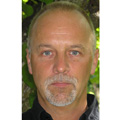Prof. Dr. Volker Demuth
Speaker

Prof. Dr. Volker Demuth, born in 1961 in Southern Germany, is a lyricist, essayist, and media scientist. He studied philosophy, literature, and history at the Universities of Oxford and Tübingen, where he obtained his doctorate on the Sturm-und-Drang poet J. M. R. Lenz.
He has been working as a freelance writer since 1993. Apart from his work for the Südwestrundfunk, which produced a series of radio plays, Demuth held a professorship for media theory at the Fachhochschule Schwäbisch Hall since 2000 which he gave up in 2004 to concentrate on his literary work.
Since the end of the 90s, he developed a new, spacial form of poetry with the ‘RaumPoem’ (room poem), in which different media are used in an installational form of language. He released many books and published in diverse journals and newspapers (Lettre International, Neue Rundschau, Die Welt, among others). His poems were translated into French, English, and Russian. He is a member of the German PEN Centre and has won several awards for his works, most recently the Award of Honour of the ‘Deutsche Schillerstiftung’ (German Schiller foundation) in 2012.
Some of the most recent of Demuth’s publications are: Das angekreidete Jahr (2007), Lapidarium (2010), Zyklomoderne (2012), Stille Leben (2013). He currently lives as a freelance writer in Zwiefaltendorf (Donau) and Berlin.
